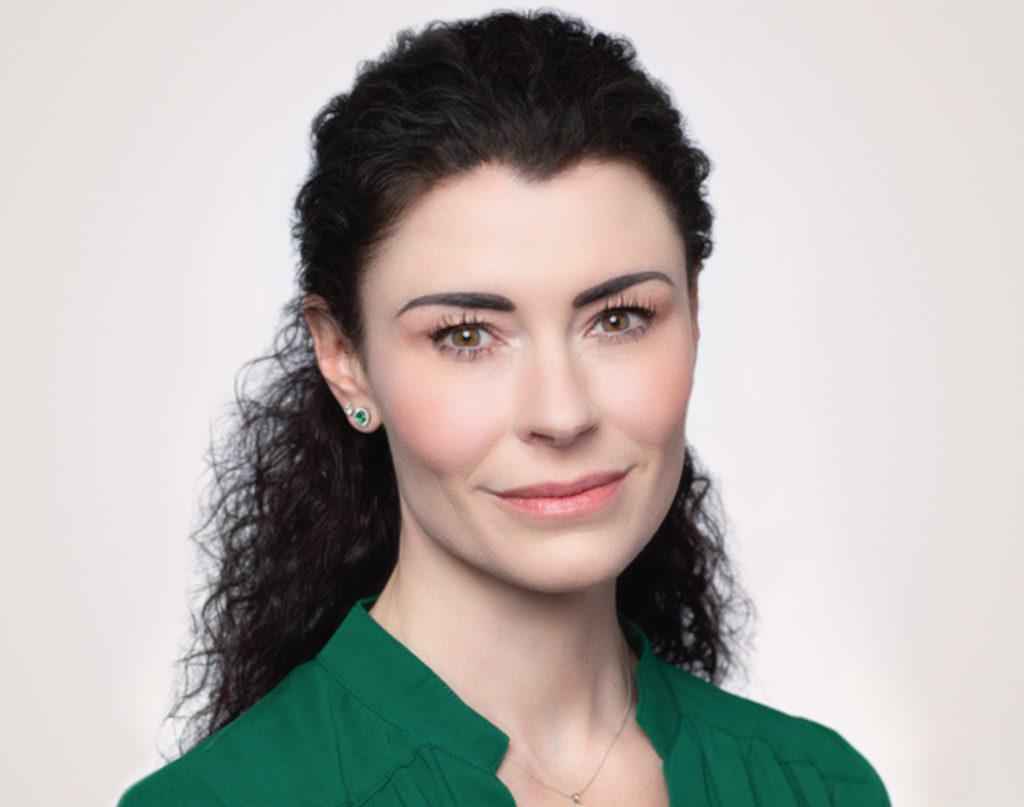
July 20, 2020
12 Steps to a Healthier Law Practice in 2020: Step 7 – The Practice of Law is Not a Dating Service
Happy July! In November 2018, 69 new or amended California Rules of Professional Conduct (“CRPC”) were thrust upon California’s more than 250,000 lawyers. These rules were renumbered and reorganized to align with the American Bar Association’s (“ABA”) Model Rules and replaced the 46 ethics rules that California lawyers had been following for nearly 30 years. Despite each of us having been responsible for adhering to these rules since the end of 2018, many California lawyers and law firms still do not know, or do not fully appreciate, the significance of the modifications. Therefore, as we enter into this new decade and the second full year of these rules being in effect, I invite you and your firm to join my 12-step program to a healthier law practice in 2020 and the years to come.
Each month I will feature an article on the key ethics rule changes aimed at guiding you and your firm to a healthier law practice by better managing your risks of liability. You can access each article directly on this blog page or you can subscribe to this blog to ensure that you don’t miss any of the 12-steps. The steps do not have to be reviewed in order, but you are encouraged to read each step to optimize the value of this program. To date, the following steps have been published:
Step 2 – Treat Others The Way You Want To Be Treated;
Step 4 – Money Does Not Buy Happiness;
Please note that the articles on this blog are not legal advice and do not take into account specific facts or circumstances for which a tailored analysis and risk management plan is recommended.
STEP 7 – THE PRACTICE OF LAW IS NOT A DATING SERVICE
In this period of shelter-in-place, social distancing and other restrictions caused by the coronavirus pandemic, lawyers are having less in-person contact with their clients, if any. Under these circumstances, an analysis of CRPC rule 1.8.10 – “Sexual Relations with Current Client” – may not seem apropos. (For the purposes of this rule, “sexual relations” means sexual intercourse or the touching of an intimate part of another person for the purpose of sexual arousal, gratification, or abuse. Rule 1.8.10(b); Business & Professions (“B&P”) Code § 6106.9(d).) On the contrary, I suggest there is no better opportunity than now, before the world opens back up again, to examine if you and your law practice are in compliance with the current ethics rules and if your risks of liability are being effectively managed.
As a fiduciary, a lawyer is held to a high standard of care. A lawyer’s relationship with a client is a complex union in which the client’s well-being is paramount. A client turns to a lawyer as a trusted confidant and advisor, and often calls upon a lawyer for assistance during vulnerable times. As Comment [17] to the American Bar Association’s (“ABA”) Model Rule 1.8(j) states:
The relationship [between a lawyer and client] is almost always unequal; thus, a sexual relationship between lawyer and client can involve unfair exploitation of the lawyer’s fiduciary role, in violation of the lawyer’s basic ethical obligation not to use the trust of the client to the client’s disadvantage. In addition, such a relationship presents a significant danger that, because of the lawyer’s emotional involvement, the lawyer will be unable to represent the client without impairment of the exercise of independent professional judgment. Moreover, a blurred line between the professional and personal relationships may make it difficult to predict to what extent client confidences will be protected by the attorney-client evidentiary privilege, since client confidences are protected by privilege only when they are imparted in the context of the client-lawyer relationship. [] [T]he significant danger of harm to client interests and [] the client’s own emotional involvement renders it unlikely that the client could give adequate informed consent[.]
California’s rule 1.8.10 is much stricter than its former rule 3-120, bringing California’s standard in line with the ABA’s Model Rule 1.8(j) and the majority of jurisdictions around the country. California’s old rule permitted lawyers to have sexual relations with clients unless it was a condition of any professional representation, such as being considered a form of payment for services rendered, or if the lawyer coerced, intimidated or applied undue influence in entering into sexual relations with a client. The current rule bans all sexual relations with a current client, who is not the lawyer’s spouse or registered domestic partner, unless the client and lawyer had a prior consensual sexual relationship that existed when the lawyer-client relationship commenced. Therefore, the new rule has shifted the standard from “permitted, unless” to the more bright-line standard “prohibited, unless.”
When a client is an organization, the rule applies to inside or outside counsel of the organization who has sexual relations with the constituent of the organization who supervises, directs or regularly consults with that lawyer concerning the organizations legal matters. Rule 1.8.10, Comment [2]. This was true under the former rule as well.
In adopting the Model Rule’s bright-line prohibition against sexual relationships with a current client, the State Bar’s Commission for the Revision of the Rules of Professional Conduct believed it would have a “salutary deterrent effect” against improper attorney-client sexual relationships. Yet, California’s rule differs from the Model Rule in some important respects. First, it specifically exempts spouses and registered domestic partners from the rule. Rule 1.8.10(a). Second, if a person other than the client alleges a violation of this rule, it requires that the State Bar must first consult with the client at issue before bringing disciplinary charges against the lawyer, and must consider whether the client would be unduly burdened by further investigation or the pursuit of charges. Rule 1.8.10(c).
B&P Code section 6106.9 of the State Bar Act still reflects the old standard of “permitted, unless” and has not been updated to correspond with the “prohibited, unless” standard of rule 1.8.10. However, because California lawyers are bound by both the Rules of Professional Conduct and the State Bar Act, any sexual relations with a client can result in discipline, even if such action is arguably still permitted under B&P Code 6106.9.
Therefore, under rule 1.8.10 and its Model Rule counterpart, consent doesn’t matter. Even if a lawyer’s sexual relations with a client is consensual or was initiated by the client, it is still prohibited and can result in discipline, regardless of whether it is clear that there is no quid quo pro, coercion, intimidation or undue influence. See Rule 1.8.10, Comment [1]. This rule is meant to protect clients from abuses of power by lawyers, and to ensure a lawyer’s independent professional judgment free from conflict and the inevitable emotions tied to intimate relationships. It is important to note that the rules commission took into consideration and analyzed the important privacy concerns implicated by this new rule.
Although there are no published California disciplinary cases concerning a violation of rule 1.8.10 since the rule’s inception in November 2018, the disciplinary cases from other jurisdictions with a similar rule are enlightening. The Ohio Supreme Court, for instance, has established a trend of imposing severe discipline on lawyers who tried to justify their sexual relations with a client by claiming it was a mutual decision by consenting adults. In a January 2018 opinion, Ohio’s Supreme Court characterized the lower disciplinary board’s analysis of the multiple sexual relations between a criminal defense lawyer and his client (which the lawyer falsely denied to the judge presiding over the client’s criminal case) as “blaming the victim,” and increased the lawyer’s penalty above what the board had recommended. The court’s opinion held that without a sexual relationship that pre-dates the client relationship, “seeking or having sex with a client is a per se violation,” and “the fact that a client appears to have consented does not mitigate the attorney’s misconduct or provide a defense against a violation.” The court further described a lawyer’s sexual relationship with a client as “inherently and insidiously harmful,” categorizing this particular case as the “most disturbing variety” — where “a lawyer has had sex with a client while defending the client against criminal charges … or has accepted sex in lieu of fees.” The court suspended the lawyer’s license for two years with only 18-months stayed, along with multiple conditions, including retaking and passing the MPRE, completing 12-hours of ethics CLE, and serving a two-year period of monitored probation. Disciplinary Counsel v. Starver, 155 Ohio St.3d 100, 2018-Ohio-4717, 11/28/2018. In contrast, the same court recently only imposed a conditionally stayed one-year suspension for an Ohio lawyer who began a sexual relationship with a client six months after the representation began, and continued the relationship for several years after the client’s case ended. The Ohio Supreme Court explained that its ruling was based on the “unique” facts of the case as well as the lawyer’s cooperation and strong character. Akron Bar Ass’n v. Fortado, 2020 BL 56255, Ohio, No. 2019-0805, 2/18/20.
To be clear, under current rule 1.8.10, the personal relationship between the lawyer and client must have existed prior to their professional relationship in order to fall within the rule’s exception. For example, a West Virginia public defender’s sexual relationship with a client was held not to be unethical under West Virginia’s similar rule of professional conduct 1.8(j) because there was a preexisting sexual relationship beginning more than 10 years earlier when the lawyer and client were in junior high school, even though that prior sexual relationship was sporadic and there was no sexual relationship occurring at the time the lawyer-client relationship began. Lawyer Disciplinary Bd. v. Campbell, 2017 BL 413673, W. Va., No. 16-1036, 11/17/17. “[T]he type of longstanding relationship between the two simply does not present the same concerns associated with new relationships that truly begin after representation begins,” Justice Elizabeth D. Walker wrote for the 3-2 majority. However, it was perhaps Chief Justice Allen H. Loughry II who put it best when he argued in dissent that the lawyer should have been suspended, stating: “The practice of law is not a dating service.”
Please contact author Kendra Basner if you have any questions about this article or if you would like guidance as to the application of or compliance with these rules.

